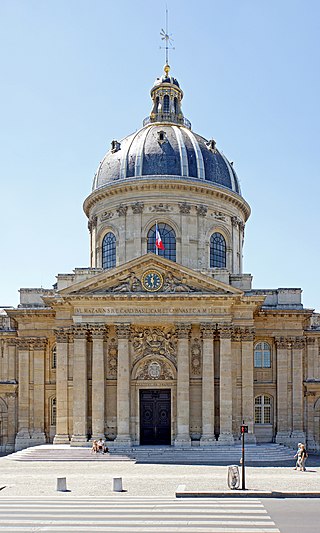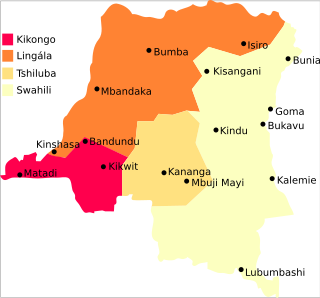
French is a Romance language of the Indo-European family. It descended from the Vulgar Latin of the Roman Empire, as did all Romance languages. French evolved from Gallo-Romance, the Latin spoken in Gaul, and more specifically in Northern Gaul. Its closest relatives are the other langues d'oïl—languages historically spoken in northern France and in southern Belgium, which French (Francien) largely supplanted. French was also influenced by native Celtic languages of Northern Roman Gaul like Gallia Belgica and by the (Germanic) Frankish language of the post-Roman Frankish invaders. Today, owing to the French colonial empire, there are numerous French-based creole languages, most notably Haitian Creole. A French-speaking person or nation may be referred to as Francophone in both English and French.

Quebec French, also known as Québécois French, is the predominant variety of the French language spoken in Canada. It is the dominant language of the province of Quebec, used in everyday communication, in education, the media, and government.

The Organisation internationale de la Francophonie is an international organization representing countries and regions where French is a lingua franca or customary language, where a significant proportion of the population are francophones, or where there is a notable affiliation with French culture.

The Académie Française, also known as the French Academy, is the principal French council for matters pertaining to the French language. The Académie was officially established in 1635 by Cardinal Richelieu, the chief minister to King Louis XIII. Suppressed in 1793 during the French Revolution, it was restored as a division of the Institut de France in 1803 by Napoleon Bonaparte. It is the oldest of the five académies of the institute. The body has the duty of acting as an official authority on the language; it is tasked with publishing an official dictionary of the language.

France has one official language, the French language. The French government does not regulate the choice of language in publications by individuals, but the use of French is required by law in commercial and workplace communications. In addition to mandating the use of French in the territory of the Republic, the French government tries to promote French in the European Union and globally through institutions such as La Francophonie. The perceived threat from Anglicisation has prompted efforts to safeguard the position of the French language in France.

Paris Diderot University, also known as Paris 7, was a French university located in Paris, France. It was one of the inheritors of the historic University of Paris, which was split into 13 universities in 1970. Paris Diderot merged with Paris Descartes University in 2019 to form the University of Paris, which was later renamed Paris Cité University.

Sir Michael Edwards, OBE is an Anglo-French poet and academic.

The Democratic Republic of the Congo is a multilingual country where an estimated total of 242 languages are spoken. Ethnologue lists 215 living languages. The official language, since the colonial period, is French, one of the languages of Belgium. Four other languages, three of them Bantu based, have the status of national language: Kikongo-Kituba, Lingala, Swahili and Tshiluba.

Senegal is a multilingual country: Ethnologue lists 36 languages, Wolof being the most widely spoken language.

The Agence universitaire de la Francophonie is a global network of French-speaking higher-education and research institutions. Founded in Montreal, Quebec, Canada in 1961, as the Association des Universités Partiellement ou Entièrement de Langue Française (AUPELF), the AUF is a multilateral institution supporting co-operation and solidarity among French-speaking universities and institutions. It operates in French-speaking and non-speaking countries of Africa, the Arab world, Southeast Asia, North and South America, Polynesia, the Caribbean, Central, Eastern and Western Europe. As of 2020, the AUF has 1,007 members distributed throughout francophone countries on six continents. It is active in 119 countries, and represented by regional offices and information centers on campuses and in institutes. The Association receives funding from the Organisation internationale de la Francophonie (OIF), and its headquarters are located at the Université de Montréal, Quebec.

Valérie Anne Émilie Pécresse is a French politician who has been the President of the Regional Council of Île-de-France since 2015. A member of The Republicans, she previously served as Minister of Higher Education and Research from 2007 to 2011 and Minister of the Budget and Government Spokeswoman from 2011 to 2012 under Prime Minister François Fillon. Pécresse represented the 2nd constituency of Yvelines in the National Assembly from 2002 to 2007 and again from 2012 until 2016.

Bernard Cerquiglini, is a French linguist.

Burundi traditionally had two official languages: Kirundi and French. English became the third official language of the country in 2014. Of these, only Kirundi is spoken by the vast majority of the population. It is recognised as the national language by the Burundian constitution of 2005.
The First Congress on the French Language in Canada was held in Quebec City from June 24 to June 30, 1912. Its stated objective was to "examine the questions raised by the defence, the culture and the development of the French language and literature in Canada."

Shumona Sinha is an Indian-born naturalised French writer. She was born in Calcutta, West Bengal, India, and lives in France.

The French language became an international language, the second international language alongside Latin, in the Middle Ages, "from the fourteenth century onwards". It was not by virtue of the power of the Kingdom of France: '"... until the end of the fifteenth century, the French of the chancellery spread as a political and literary language because the French court was the model of chivalric culture". Consequently, it was less as a centralising monarch than as a "gentle courtly prince" that the king unwittingly spread his language" and "the methods of expansion were not political"'. This status continued to grow into the 18th century, by which time French was the language of European diplomacy and international relations.
Jean-Claude Corbeil, was a Canadian linguist and lexicographer. He served as head of the linguistic department at the Office québécois de la langue française from 1971 to 1977 and oversaw the introduction of Quebec's language laws during that decade. He also co-authored several visual dictionaries for Scholastic Corporation, Macmillan Publishers, Firefly Learning, and Merriam-Webster.

The Francophonie or Francophone world is the whole body of people and organisations around the world who use the French language regularly for private or public purposes. The term was coined by Onésime Reclus in 1880 and became important as part of the conceptual rethinking of cultures and geography in the late 20th century.
The Prix Richelieu is a French literary award that rewards a journalist who "testified by the quality of his own language, his concern to defend the French language". It is awarded annually, under the sponsorship of the association Défense de la langue française and the Éditions Larousse.
The Act to amend the Charter of the French Language is a Quebec amending act introduced by the Landry government in 2002, which made adjustments to several provisions of Quebec's language policy. Its main objective was to rectify the Charter of the French Language in response to the recommendations of the Estates-General on the Situation and Future of the French Language in Quebec.














